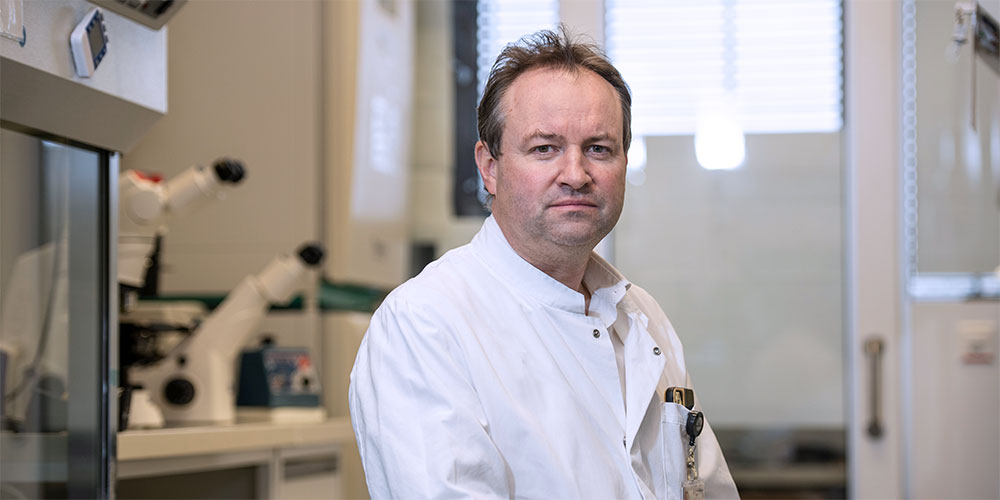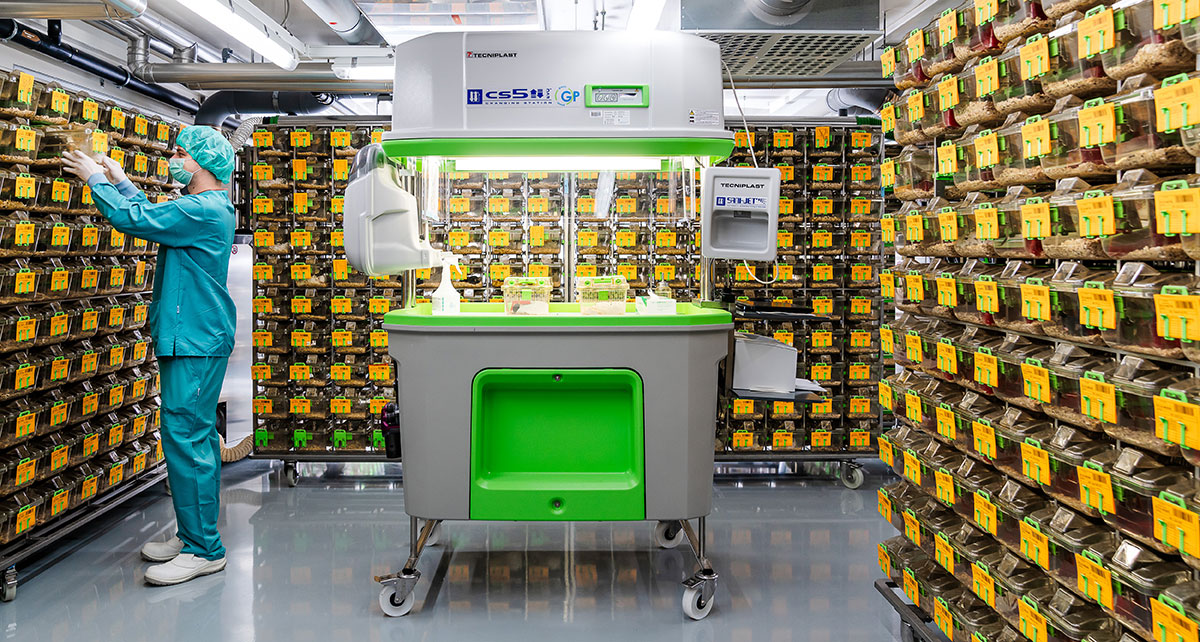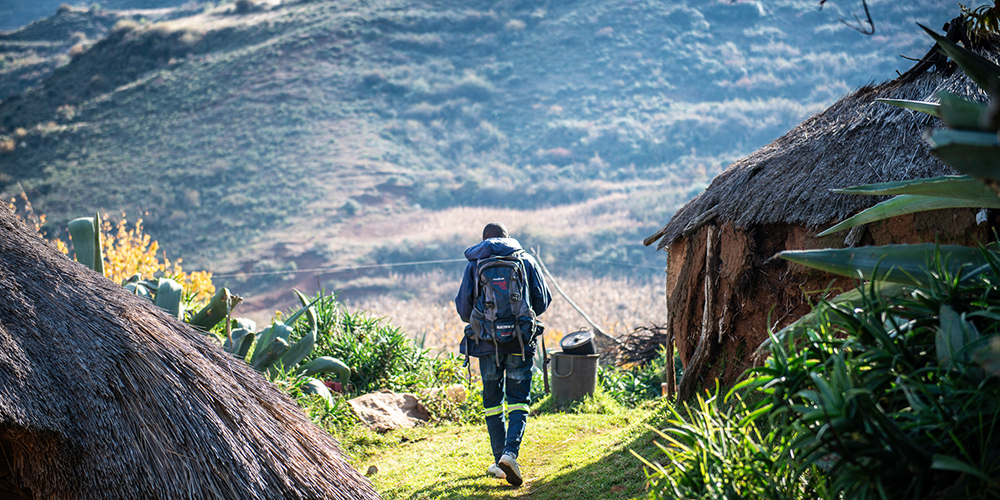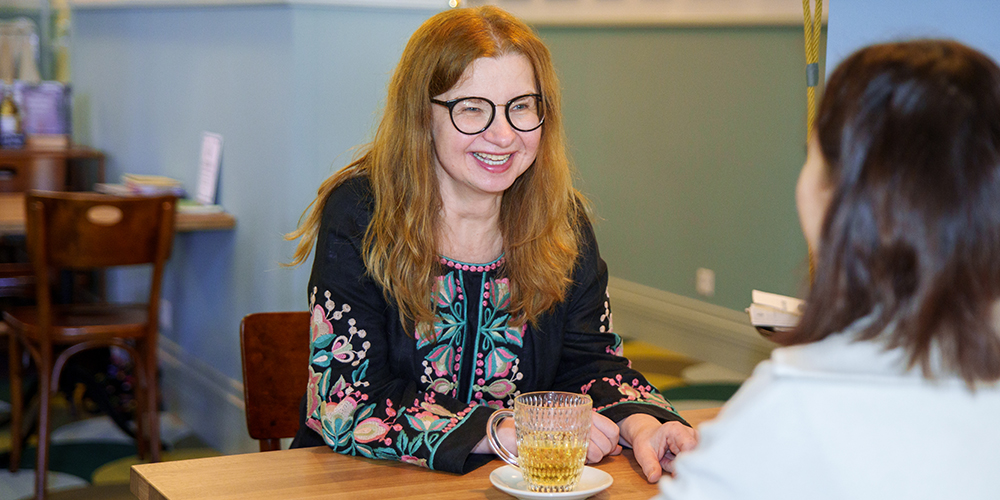“We think carefully about how many mice are necessary”
Professor Alfred Zippelius, from the Department of Biomedicine at the University of Basel, has been conducting experiments with mice for several years. In this interview, he explains why he decided to do this and how it advances his research in cancer immunotherapy.
10 January 2022
Professor Zippelius, why did you start doing experiments with mice 11 years ago?
During my research career, I worked for many years without animal experiments and only did experiments with human cells. Then I had a question where I simply couldn’t move forward any further, and I integrated animal experiments into my work. If you look at my laboratory today, it’s interconnected. Either we start from a very specific question using animal experiments and then validate the result in humans, or we’re faced with a problem in a patient, which we then try to answer using an animal model.
What do animal experiments offer compared with human trials?
Research on humans is in some ways very descriptive. We receive tumors from patients and can then take a snapshot of the tumor cells and immune cells in the test tube. But there is no longer any influx or efflux. For example, there are no lymph nodes – the structures in which an immune response occurs. That’s where the T-cells are formed, which then migrate to the tumor. In order to research fundamental biological mechanisms such as these, and to answer certain questions, we require a closed system. And we can only do that in mice.
What type of experiments do you carry out with animals?
There are two categories of experiment: the first concerns the efficacy of treatments. Here, the mice are injected with a tumor and a standard treatment is compared with an experimental approach. We can see how the tumor reacts to the treatment, whether it responds to it. The second category is just as important: it’s about understanding the mechanism. We inject a tumor that may or may not grow. Then we interrupt the experiment at a specific point and analyze the entire system; that is, the tumor and the related organs. Why is the immune system able to reject a tumor at this point, or why not?
Can the results of experiments on mice transfer to humans?
That’s a perfectly valid question. In evolutionary terms, mice and humans parted ways 75 million years ago and one must be aware of the significant differences. On the other hand, there are also considerable similarities. It’s important that we pose the mechanistic questions in mice and then critically examine whether this is the same in humans or not. If we want to do translational science, we need both. Our vision is that the research findings will carry over to humans, even if in practice that doesn’t always happen as quickly as we would like. However, we are working specifically on experimental systems in the laboratory in order to use human cells to answer questions that we could previously only answer with animal experiments. Unfortunately, science is not yet developed to the point that animal experiments can be abandoned.
In animal experiments, the aim is to minimize the animals’ suffering as far as possible. Do you think about that aspect as well?
Of course we impose strict conditions on ourselves. Since I’m generally no longer the one that conducts the experiments, we’ve had a lab technician working in my group for years who is solely responsible for animal experiments. This guarantees that the mice are looked after according to specific guidelines and everything is well documented. She also gives the researchers a rap on the knuckles if necessary.
We have strict criteria on how we approach animal experiments. For example, we concentrate on the most important questions, avoid unnecessary experiments and think carefully about how many mice are necessary in order to obtain statistical significance. We have to account for all this very precisely in our animal experiment application.
You are not only a researcher, but also the deputy head of oncology at the University Hospital of Basel. Does your contact with cancer patients influence how you weigh the benefits to humans against the suffering of animals?
I think it makes a strong impression, of course. I was once asked whether I thought animals were worth less than people. It’s an important ethical question. But at the end of the day I have to admit that the cancer patient who sits in front of me with their fate hanging in the balance means more to me at that moment. Practically all the modern cancer drugs that we have available today were developed using animal experiments. There is currently still no other way to do it.
Initiative to ban animal and human experiments
On 13 February, Switzerland will vote on the federal popular initiative “Yes to the ban on animal and human experiments – Yes to research that brings safety and progress”. It aims to ban all experiments on animals and humans, as well as the trade, import and export of products, such as medicines, for which animal testing or clinical trials have been carried out.
Swissuniversities, the umbrella organization of Swiss higher education institutions, warns of a medicine and research ban. Accepting the initiative would prevent above all biomedical research and the development of new medical treatment methods. The issues at stake include the high quality of healthcare and responsible research in Switzerland in the service of the population and the environment.




